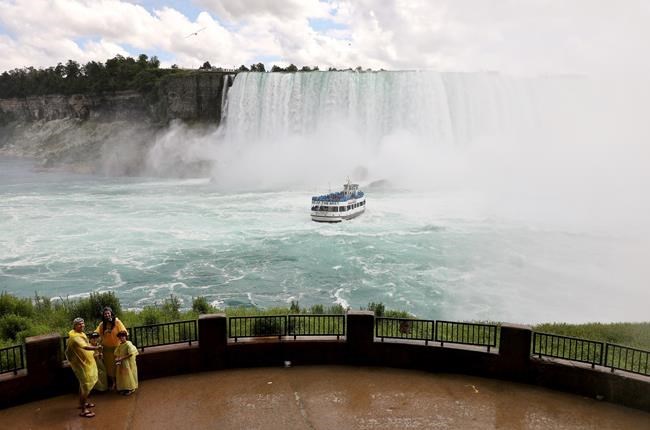TORONTO — Members of Ontario's tourism industry welcomed the province's tailored aid for the struggling sector as the COVID-19 pandemic threatens a second summer.
The Ontario budget calls for $400 million in spending over the next three years on the tourism industry, on top of previously announced investments of $225 million in the sector, after the pandemic forced would-be patrons to spend much of the last year at home.
It was encouraging for businesses in the industry see the government recognize the tourism sector's importance, said Andrew Weir, executive vice president at Destination Toronto, after a report earlier this month estimated that 463 events were cancelled in the city this year alone.
"Tourism and hospitality — I think it is widely recognized now as an industry — was first hit really hard, and perhaps has the longest road back to full recovery," said Weir.
Among the supports is $150 million toward a potential tax credit for Ontario residents that the government teased last year, which would apply to up to 20 per cent of certain tourism expenses in the province. The government said it will introduce legislation for the tax credit once travel is safe. It will also offer free day-use entry to provincial parks on Monday through Thursday from May 1 to Sept. 2.
The budget said $100 million will be put toward grants for small tourism and hospitality businesses, such as hotels, travel agencies, camps and amusement parks. The grant isn't available to companies that got the Ontario Small Business Support grant, and recipients must have fewer than 100 employees and sales that dropped by at least 20 per cent.
The grant is of particular importance to a growing swath of tourism and hospitality businesses that have gone into debt to change their layouts and buy protective equipment during the pandemic — only to face looming insolvency amid ongoing restrictions, said Chris Bloore, vice president of policy and government affairs at Tourism Industry Association of Ontario. Bloore said he would like to see even more money put toward grants if the summer draws nearer without concrete dates, vaccine or case count milestones that the industry can plan around.
Both Bloore and Weir said that local travel, as incentivized by the tax credit proposal, will be key to getting the hospitality and tourism industry on its feet as international travel remains out of bounds.
Other proposals in the budget include $200 million for building and renovating sports and recreation centres, as well as funding amounts for regional tourism organizations, arts organizations, provincial park technology, hunting and fishing outfitters and wineries.
The budget said up to $15 million is slated for regional tourism organizations, $10 million for the arts, about $3.9 million for parks technology, $1.3 million in waived rent and fee support for outpost camps and hunting and fishing outfitters, and $10 million in grants to wineries and cideries.
Bloore said that it's a good budget for the industry's economic recovery, but that there is still more work to do to get business back on track. Ideally, his organization would like to see hotel workers included in priority COVID-19 vaccination plans alongside restaurant workers, and rebates on property taxes for hotels.
Celia Smith, chief executive of Luminato Festival Toronto, said she is happy to see funding set aside for upskilling, as many in the industry have had to learn e-commerce and online event planning over the past year. Smith also says the pandemic has shone a light on the fact that artists, even if they are independent contractors, are workers that contribute to the economy — particularly at a time when many people are at consuming more art to lift their spirits.
But despite strides made in the budget, the arts sector remains "notoriously underfunded," Smith said. The arts festival has spent the year planning for three potential scenarios for this summer's events, including an outside version and a filmed version of local performances.
"The good news is, we're employing a lot of people (to film), we're still telling significant stories ... we also are talking to a global audience," says Smith. "So when we are able to travel again, we'll have continued to keep the Toronto region top of mind."
This report by The Canadian Press was first published March 25, 2021.
— With files from David Paddon.
Anita Balakrishnan, The Canadian Press




